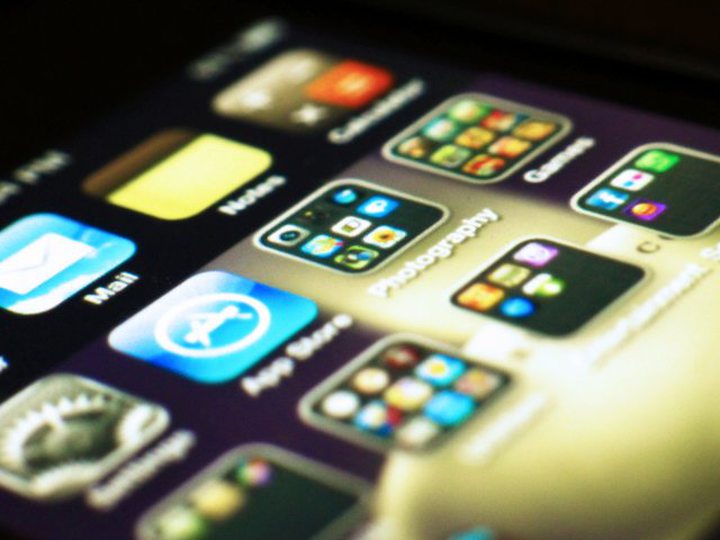Mobile, Tablet Apps Could Change Industry

The explosion in mobile devices has created a new distribution channel for hotels.
Approximately 55% of United States households have a smartphone and 44% a tablet, according to the Consumer Electronics Association. As a result of the growing popularity of Internet-enabled mobile devices, hotel companies are reporting a larger percentage of online sales from mobile platforms. For example, InterContinental Hotels Group reported mobile revenues of $330 million in 2012, accounting for 9.7% of online revenues, while Choice Hotels International stated in May 2013 that mobile bookings accounted for 13% of its online sales.
While most global hotel chains have mobile-friendly websites, they are now moving into hotel applications for smartphones and tablets. These apps serve a variety of functions, from booking hotels and monitoring loyalty accounts to locating nearby attractions.
But while strategies vary, hotel companies are being outpaced in this arena by other players. The lack of tablet apps, for instance, is disconcerting as online travel agencies and niche start-up companies innovate in this space. This could mean that the hotel industry is repeating history by not reacting to new technology quickly enough and letting other players dominate this space, much like it did with the rise of OTAs in the early 2000s.
App development
Marriott International, Choice Hotels and Hyatt Hotels Corporation have one smartphone app that searches for all of their hotel brands. Marriott and Hyatt are well-known names thanks to their flagship brand sharing the name of their parent company, so it is likely guests are able to find these apps easily. The companies can capitalize on their strong brand recognition and provide an easy-to-use one-stop shop.
Marriott chose not to roll out an app for each of its 18 brands as consumers tend to be generally inundated with apps, and the company did not think having multiple options made for a good customer experience, said John Wolf, brand contact for Marriott Hotels & Resorts. Marriott focused on delivering services such as bookings, enrollment in Marriott Rewards and reviewing reservations when creating its app.
Although the Choice name is not tied to any of its brands, the company purposefully has promoted the Choice Hotels name in association with all of its brands, so it may be easy for travelers to find the app.
On the other hand, Hilton Worldwide and InterContinental Hotels Group have smartphone apps for each of their brands—each with the same functionality. The strategy ensures guests are able to find an app for their preferred brand within the portfolio. This is very important for IHG as travelers may not be aware that its massive Holiday Inn brand is part of the company.
These apps, however, do pull up search results for other brands, so a guest with the Hilton app can book a room at a Hampton Inn. Hilton also has an app specifically called HHonors for its loyalty program.
Having individual apps for brands may be advantageous to appeal to each brand’s guest type. Michael Menis, VP of Web and interactive marketing for IHG, said “booking behavior tends to reflect the individual brand. For example, the bookings through our extended-stay branded apps for Staybridge Suites and Candlewood Suites reflects a longer length of stay. The booking path itself for each app is optimized for speed and ease of use, which is critical on a mobile device.” Furthermore, IHG’s mobile strategy is "to connect with the guest wherever and whenever they want," Menis said, which is why IHG has multiple brand apps.
Wyndham Hotel Group and Starwood Hotels & Resorts Worldwide have a mixed approach. Both companies have one app that searches for all of their brands but also a few brand-specific smartphone apps.
For Wyndham, the one app that searches for all brands is Wyndham Hotel Group, but it does have an app for the brands Super 8, Days Inn and Wyndham (all three show results for other Wyndham brands). Given that Wyndham is not the largest brand in the company’s portfolio, consumers may find it difficult to find the app to search for other Wyndham brands, such as Ramada and Howard Johnson.
Starwood has taken a different approach by having its SPG loyalty program as the main app. The company also has an app for the W brand, which seems to be positioned more as a concierge service than a booking tool. Given that SPG members accounted for 50% of occupancy in 2012, it is a smart move to appeal to its most important client base, but the company may be losing out on potential downloads from the other 50% who may not be aware of what SPG is and what brands it encompasses.
Hotels in need of a tablet strategy
Many of the leading companies do not have apps for tablets.
Marriott is piloting a Guest Services tablet app at four hotels for its loyalty program members, which allows them to make service requests among other actions.
IHG has an app that books hotels across all brands and a concierge app for the InterContinental Hotels & Resorts brand in addition to the InterContinental Kitchen Cookbook iPad app, which are both more experiential-focused apps that draw in the guest to the unique experience that brand offers. IHG also has three apps for the Android tablets (IHG, Holiday Inn and Holiday Inn Express), an IHG app for iPad and a Holiday Inn app for Windows 8.
Hilton’s Conrad brand has a concierge app for the iPad and an app for DoubleTree that allows people to track their favorite places as well as make bookings.
Starwood’s W hotels app is optimized for the iPad, while Choice has the Choice Hotels app for booking hotels.
It is expensive and time-consuming to build and maintain apps for all of the smartphones and tablets and their various operating systems, but tablets are nearing the same penetration rate as smartphones. Euromonitor International predicts that tablet unit sales will grow by 27.5% over the next five years, driven mainly by sales to businesses.
According to a study commissioned by Mobiquity in March 2013, 36% of tablet owners plan to spend more than $500 on a tablet app for travel, a number likely to grow as more apps become available and penetration of tablets increases.
OTAs such as Expedia.com, Orbitz and Priceline.com have well-regarded tablet apps. There are also numerous last-minute hotel booking companies, such as Hotel Tonight, which also have tablet apps.
The lack of booking (and perhaps innovative concierge) apps means that hotel companies risk leaking bookings to third parties in an increasingly important booking channel.





